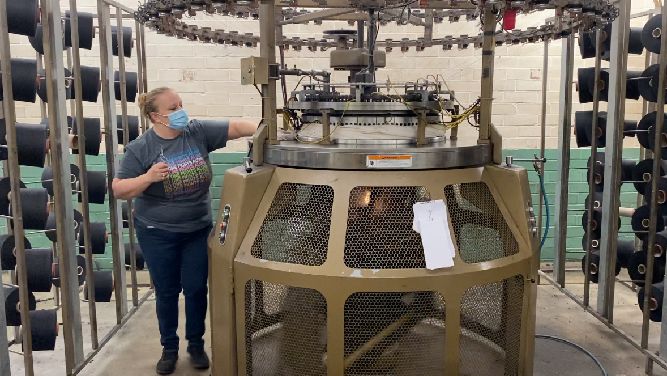CHARLOTTE, N.C. — Bill Johnston is serious about saving the planet.
His love for outdoor sports led him to studying environmental policy in college. Now, he’s using his passion to inspire others.
"The goal is to get people off of single-use plastics and thinking more consciously and making better choices day-to-day on how they live a more sustainable life," Johnston said.
Dedicated to sustainable living, he started Recover. It’s a clothing company creating eco-friendly options from head to toe.
"This shirt is literally made from the equivalent of eight plastic bottles," said Johnston. "We take the bottle and break it down into all these small flakes. These flakes are then melted into a polyester fiber.”
The repurposed plastic bottles are then mixed with recycled cotton and knit into fabric.

Like Johnston, environmentalists say "fast fashion" is causing landfills here in Charlotte, and around the country, to fill up fast.
The term fast fashion refers to when brands turn out trendy designs, usually made with poor quality, but sold at reasonable prices. Since the items don’t last long, they end up in the trash, taking hundreds of years to decompose while emitting toxins into the environment.
"In the fashion industry, they use as much product as possible, sell it as fast as possible and get people buying as fast as possible," said Johnston.
He says when using all recycled materials, nothing goes to waste.
"All of the product comes from post-consumer plastic and post-industrial cotton waste. So, all of the plastic literally comes from your recycling bin," he said.
Once the fabric is cut into 100% recycled shirts, it’s ready to go to local retailers. Unlike fast fashion clothing, which typically arrives from overseas, Johnston says a part of Recover’s sustainability is cutting down on carbon dioxide emissions that come from shipping products.
"We can drive our entire supply chain in just one day. When you compare that to an Asian made t-shirt that travels roughly 17,000 miles before it hits the end consumer, the carbon emissions and greenhouse gas emissions are substantial," he said.
Johnston says as people become more involved with recycling, they should also be aware of what they're recycling, especially in their curbside bins.
For more information on what you can recycle and where it should go, head to wipeoutwaste.com. The Land and Environmental Services Agency also holds monthly webinars on what can and cannot be recycled.



